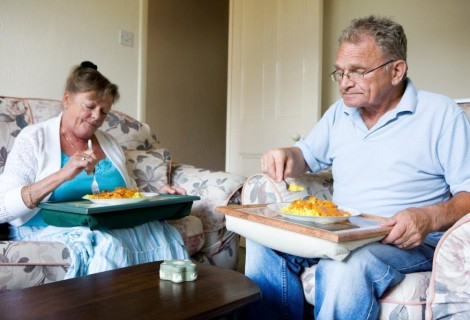Wife or Husband Will Not Go to Therapy? Positive Reinforcement Will Help
 How did it go the last time you brought up couples therapy or marriage counseling?
How did it go the last time you brought up couples therapy or marriage counseling?
Blank stare? Laughter? An outright “No!”?
Are you one of many wives who contemplate Counseling for One because your husband will not go to therapy with you?
Take heart; you’re not alone. Sometimes it’s the wife who refuses.
Either way, it can certainly feel lonely when you know your relationship needs help, but your partner won’t even give counseling a one-session chance.
So what do you do? Nag? Threaten? Bribe? Fuss?
You already know how well that works.
Isn’t it likely that your partner will not go to counseling because they honestly can’t see the practical payoff? Not to mention the emotional payoff and the payoff for the relationship.
Few spouses would sign up for that.
You need to find a way to help your partner feel good about the idea of walking through a counselor’s door.
Try positive reinforcement. Affirmation, encouragement, and reward have an interesting way of fostering and strengthening the behavior you hope for.
In fact, researchers have proven that it’s the most effective method for changing another person’s behavior and feelings for the better.
Far less effective methods such as criticism, fussing, or nagging usually fail to shape behavior, and in fact, will usually serve to increase the undesirable behavior.
So let’s see how positive reinforcement can help a reluctant spouse see things differently:
Positive reinforcement helps build esteem and break down emotional barriers.
It may be that your wife or husband will not go to therapy because they’re just feeling too embarrassed, vulnerable, or disappointed in themselves to face their issues. Poor self perception may be getting in the way of getting help.
Your sincere attempts to positively reinforce the qualities and personality traits that first drew you to your spouse will help significantly to bolster and maintain their self-esteem.
Also, your partner’s resistance to relationship work will soften when they receive affirmations on a regular basis rather than criticisms regarding weaknesses.
Over time, with the consistent use of positive reinforcement, your assertion that therapy is encouraging and supportive will also ring true.
Positive reinforcement brings back positivity.
Positive reinforcement may simply be a mutually beneficial way to lighten things up.
A persistent focus on “fixing” your relationship may have added too much weight to your marriage.
You’ll find that focusing on the good things makes it possible for you to relax a bit and enjoy your partner more. Humor and affection have a chance to blossom in the fertile soil of appreciation.
As good feelings take root, your partner will begin to feel better about you and your relationship.
Positive reinforcement shifts the emphasis from expectation to collaboration.
Let’s face it, by the time you introduced the topic of therapy to your spouse there were probably a lot of preceding conversations, irritations, and unmet expectations going on in your marriage.
That’s not unusual, but it can make communication difficult and erode the positive feelings between you.
A wife or husband will not go to therapy to hear a running list of what they did wrong or to get ganged up on by their spouse and a stranger with a list of marriage rules.
In effect, positive reinforcement puts an end to habitual criticism.
It intentionally looks for ways to praise and encourage. It reminds you to voice what you like about your partner’s contributions to your relationship.
Reward those aspects of your spouse. Focus your attention and affections clearly. Give specific and sincere praise. Say thank you every time they do something that pleases you.
Be a sincere and consistent team member. Lay off the therapy talk for a while. Show your spouse that the attention you’re paying to her is not a corner that you’re backing her into.
When your partner sees that you recognize his best efforts and care enough to acknowledge them, more good feelings will develop between you both.
If your spouse is appreciated as a contributing, valuable part of your relationship, the likelihood that they will feel safer attending a counseling session will increase, and they will have a renewed desire to work on the relationship.
Who knows? Eventually both of you may agree that couples therapy could or marriage counseling is the way to constructively reinforce those positive feelings for good on a permanent basis and build a happier home life.
Click here to learn more about Couples Therapy for One and my practice in Metairie, Louisiana




